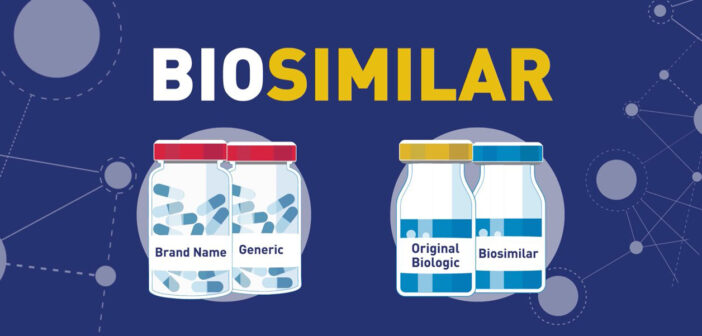If you have a chronic illness being treated by prescription medications, you probably already know your options for medications are sometimes limited – and how expensive they can be. This is especially true if you take biologic medications, which are specialized medicines created from living sources. But did you know you may have other treatment options, known as biosimilars, which are also approved by the U.S. Food and Drug Administration (FDA)?
What is a biologic medication?
Unlike most medications, biologic medications are not created from chemicals, but are made from living sources – like animal cells or microorganisms like bacteria or yeast – which make the proteins from which the biologic medication is made.
If you or a loved one have one of these conditions, you may be taking a biologic medication to treat it:
- Arthritis
- Breast, lung, or colon cancer
- Crohn’s Disease
- Diabetes
- Kidney conditions
- Macular degeneration
- Multiple Sclerosis
- Psoriasis
Now, multiple companies can make biosimilar versions of “brand name” biologics, like insulins, similar to how generics are versions of brand name drugs. This could mean access to more treatment options for you, which could also potentially lower your cost.
How are biosimilars created?
Imagine loaves of bread made from the same recipe. No one loaf is an identical copy of another, but they are the same type of bread. Each batch of a biologic medication is made with a mix of ingredients that includes living sources and because living sources have slight variations, each batch is not an exact copy. However, each batch does provide the same treatment benefits.
Just like it sounds, biosimilars are similar (almost identical) to their reference biologic, as they are made from the same types of sources as the original biologic medication – and they offer the same treatment benefits and have the same potential side effects. Biosimilars are given to patients the same way as the original biologics, with the same strength and dosage. Biosimilars are safe and effective for treating many illnesses, and may be available at a lower cost than the original biologic.
How are biosimilars different from generic drugs?
The main difference between a generic drug and a biosimilar is that generic medications are made from the same chemicals as the brand name medication. Because biologics are generally made from living sources and require a specialized process to produce, biologic medications naturally have variability. In order to be approved, biosimilars must be very similar to the original biologics they are compared to.
But in the same way that generic medications are expected to produce the same effects as the brand medications, biosimilars are expected to provide the same treatment benefits as the original biologic and are not expected to cause new or worsening side effects.
Ask your doctor about biosimilars.
Biosimilars may provide patients who rely on biologics with more access to important treatments, as well as the potential to save money. Every FDA-approved biologic, including biosimilars, undergo a rigorous review of data, studies and tests. The FDA also checks for medication quality during production and monitors the safety and effectiveness of all medications after their approval.
“Patients can be assured that biosimilars are highly similar to the biologic medications they’re taking that are already approved by the FDA, and that they have no clinically meaningful differences from the reference product,” said Dr. Sarah Yim, Director, Office of Therapeutic Biologics and Biosimilars/Office of New Drugs/Center for Drug Evaluation and Research at FDA. “This means patients can expect the same safety and effectiveness from the biosimilar as they would the original biologic medication.”
To learn more, visit FDA.gov/biosimilars.














